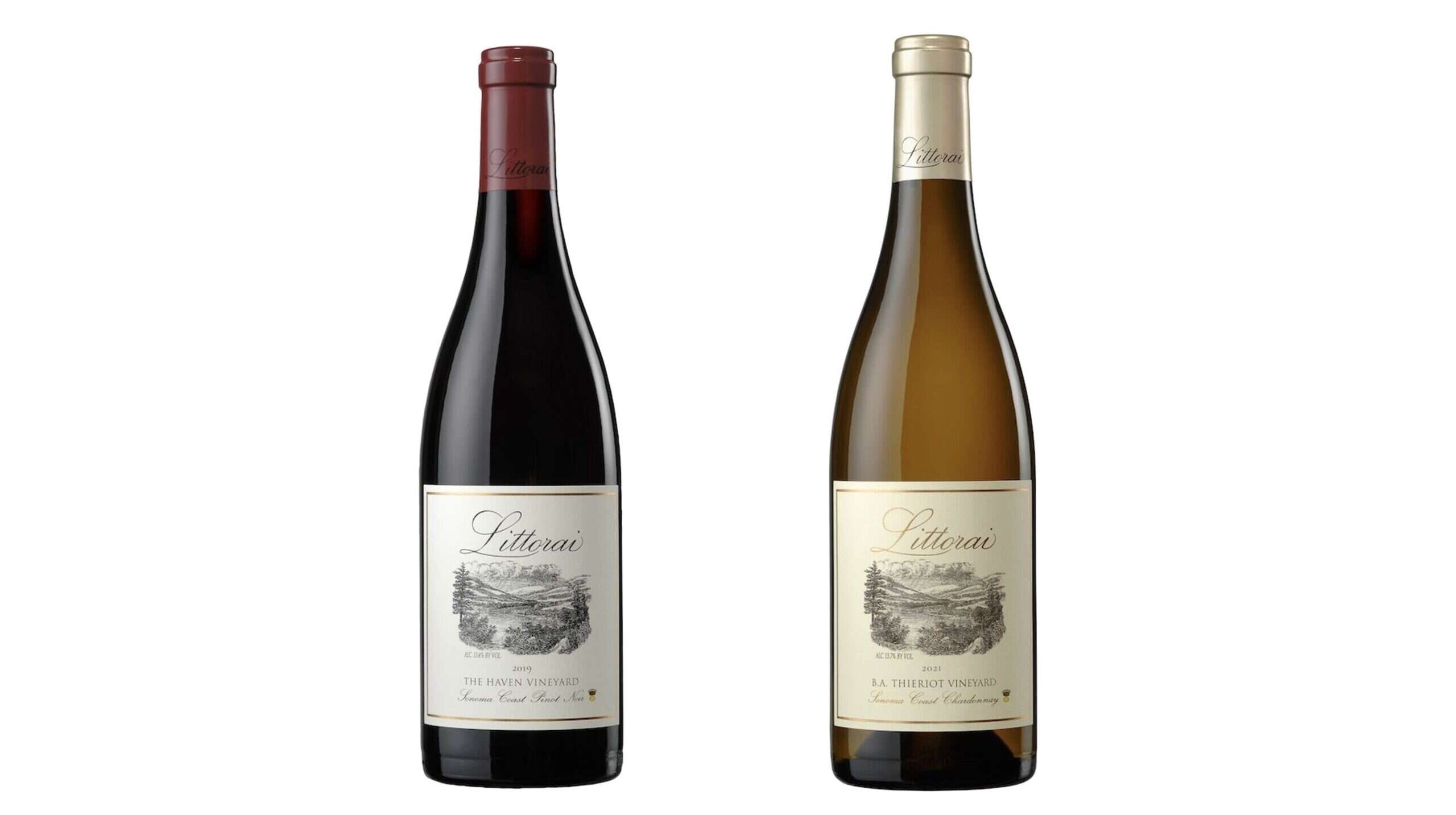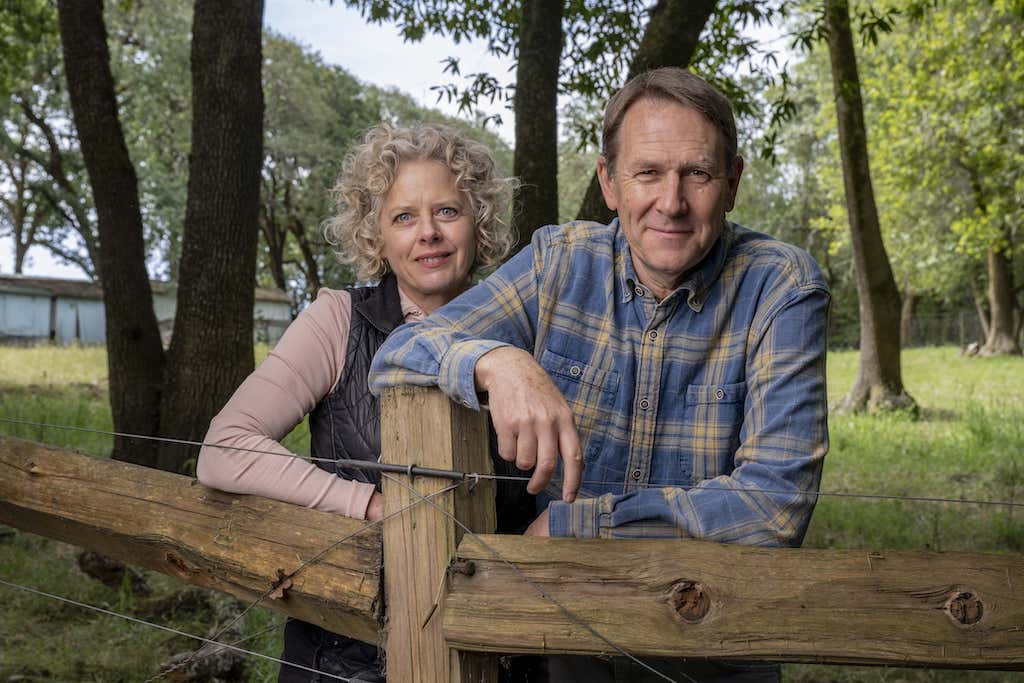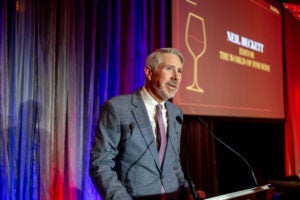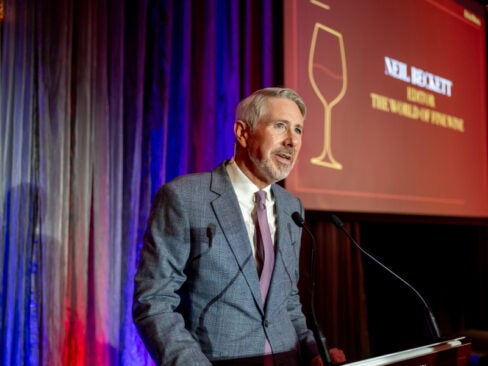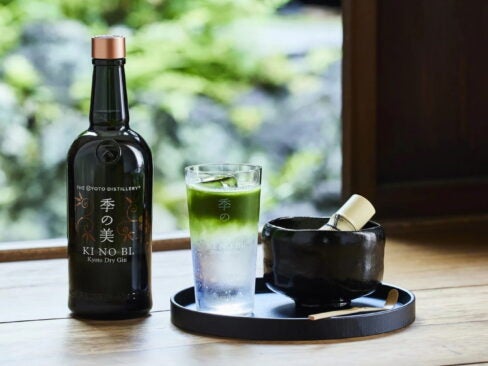Down a narrow road through gentle rolling hills in western Sonoma, not far from the town of Sebastopol, is a small, fog-kissed piece of wine-growing paradise: the 30-acre home base of passionate, opinionated winemaker Ted Lemon, co-owner with his wife Heidi of Littorai Wines.
He’s been called the godfather of modern California Chardonnay and Pinot Noir, and his collectible, long-lived wines from a dozen vineyard sites on the west Sonoma coast and Mendocino’s Anderson Valley have won accolades for their stunning purity of fruit, bright energy and silky textures.
Lemon calls his estate property on Gold Ridge Road “a diversified wine farm.” Since he and Heidi bought the land and began transforming it in 2003, it’s been the essential laboratory for his beliefs about redefining farming. Over the past several decades Lemon’s ideas about the best way to grow grapes, the importance of terroir, and confronting global warming and climate change have influenced winemakers in California and beyond.
In June, I interviewed him on a visit to Littorai during the annual conference of the Areni Institute, a London-based wine think tank (of which I’m a member) that focuses on important issues about fine wine.
[See also: The Most Luxurious California Staycation Destinations]
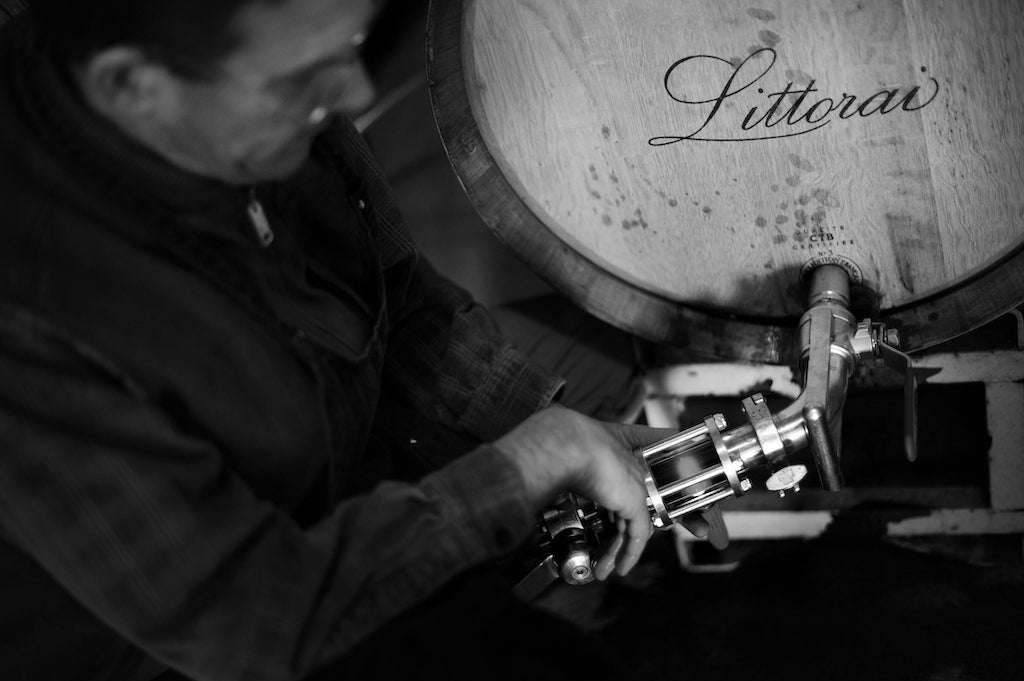
Lemon was a leader in the group pushing for the west Sonoma coast to become an official American Viticultural Area (AVA), which it finally achieved in 2022. It’s cooler than most parts of Sonoma and, the day I visited, the tall, sandy-haired Lemon was wearing a zipped-up gray down vest over his long-sleeved striped shirt, as well as a tan bill cap to ward off the bright sun.
So, a walk around the property was a way to show me what this new form of agriculture means. First stop: a weathered gray barn with herbs and other plants drying on wooden racks and hanging from rafters. “They’re intended for biodynamic teas to spray on the vineyard,” he explained like a genial college professor. “All are grown on the property. That smell in the air is chamomile, a natural fungicide.”
[See also :The Most Beautiful Wineries to Visit in California]
On our tour, Lemon pointed out a mobile chicken coop, hedgerows to hide insect-eating birds, vegetable gardens, compost piles, cows and sheep that provide the basis for that compost, and the three- acre Pinot Noir vineyard called The Pivot. The winery is made of straw bales. Water is recycled through constructed wetlands, and solar panels generate all the estate’s energy. All these elements, Lemon said, plus an open pasture, woods and streams, work together to create a self-sustaining farm. By hands-on working the land this way, he believes, you actually change your relationship to the earth.
“I was a child of the 1970s, when the environmental movement really got going and the Gaia theory of the planet as a living organism was formulated,” he explained. “Eventually I realized concern for the environment was sort of bred into me.”
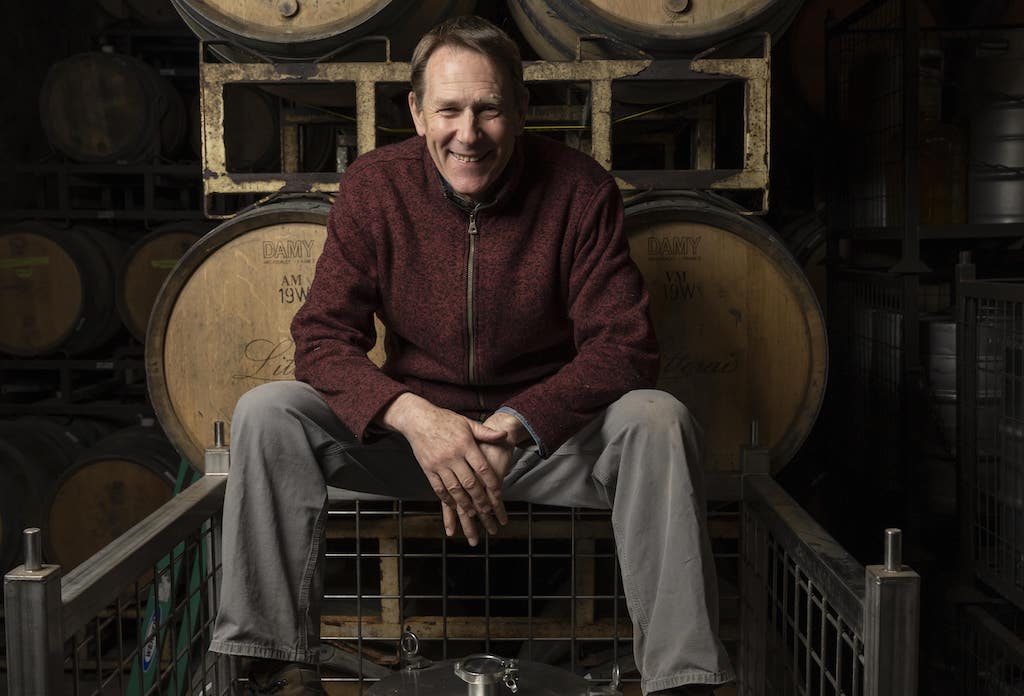
His early wine inspiration was Burgundy. After studying literature at Brown University, he received an enology degree from the University of Dijon, then interned at famed domaines Dujac and Roumier, and at age 24 became the first American winemaker at a prestigious Burgundian estate, Domaine Guy Roulot in Meursault.
When he returned to the US in the mid-1980s, he worked and consulted at wineries in Napa and Oregon, and brought with him the Burgundian philosophy of terroir: the concept that a vineyard’s unique soil, topography and climate are reflected in the wine’s character. “I’m dedicated to producing wines that have that sense of place,” he said. “When you find a great site, it just smells right. You notice the things that make it special.”
[See also: Behind the Scenes at Bollinger: Two Centuries of Fine Champagne]
His dream was to make single-vineyard pinot noirs and chardonnays that had finesse and balance — quite different from the then-popular big-fruit style. Before founding Littorai in 1993, the couple spent months hunting down the best growing conditions up and down the West Coast. Lemon was a pioneer in singling out the chilly far west Sonoma coast and Mendocino’s Anderson Valley. He purchased grapes, farmed leased vineyards and bought land. Eventually he turned toward organic viticulture, encouraging his growers to change their practices.
“I farmed with chemicals for two decades early in my career,” he says, “and I became convinced the whole Western agronomic model was unsustainable. We think of nature like a cow that we can always pump for milk. But that extractive mentality has brought us to global warming and climate change. I looked for alternatives. Biodynamics was a start.” (Biodynamics is a holistic version of organic viticulture that improves soil and encourages biodiversity to enhance an entire ecosystem.)
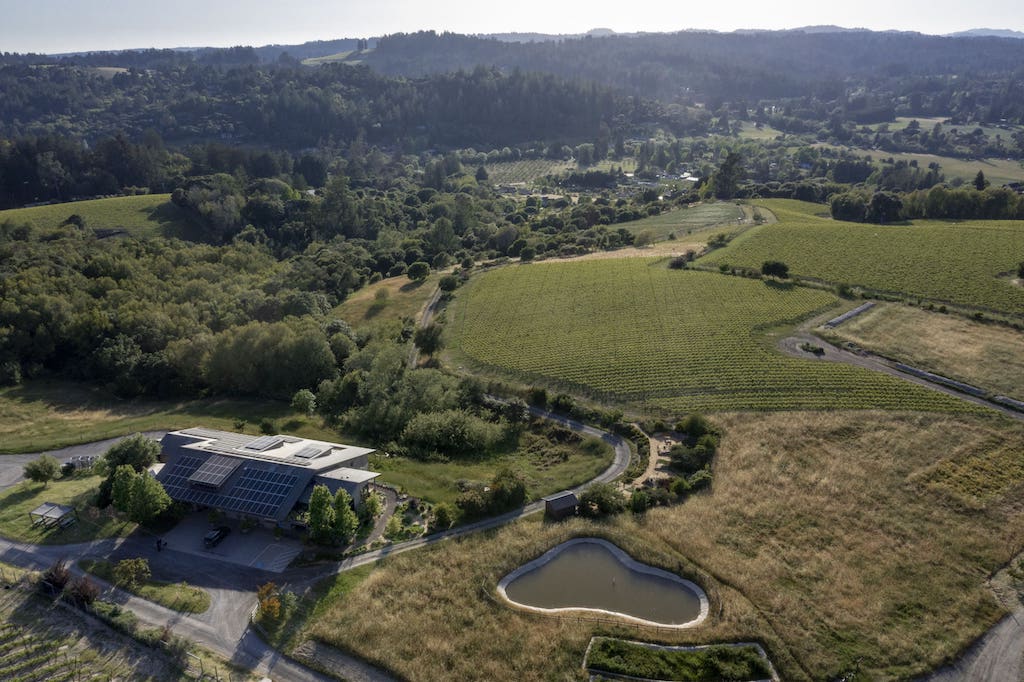
Over the past 20 years, he’s incorporated sustainable techniques like permaculture, agroecology and regenerative farming into his Littorai property and as a winemaker and consultant to Burn Cottage, a New Zealand winery.
But Lemon also sees that we are in an era of history, the Anthropocene, in which humans have become the determinant of the future. “So, any true form of environmentalism,” he said, “must embrace the role of humans in shaping and caring for the world around us. Regenerative agriculture recognizes that.” And for Lemon, behind it all is an essential spiritual dimension.
[See also: Château Quintus: Exceptional Reds from an Unbeatable Terroir]
When it comes to climate change, he’s philosophical. “The only questions for humanity now are: How will we continue to live on this earth? And how will we continue to relate to the natural world?”
His answer for the wine world is clear. “Wines can sell for a lot, and we make money. We’re the rich uncles of farming, so we should feel the moral imperative to lead the change in agriculture. We’re all on the path. It’s about pushing the path forward.”
Take Two // Littorai
Littorai makes eight single-vineyard pinot noirs and four chardonnays, from the west Sonoma coast and Anderson Valley. All are stellar, but here are two to try.
1. 2019 The Haven Pinot Noir
Purity, intensity and layers of savory fruit and earth — this crushed-cherry-scented red has everything you could want in a pinot noir. The Haven, Littorai’s original estate vineyard, is on a ridge at 1,200-ft elevation in the West Sonoma Coast AVA. From it, you can see the Pacific Ocean.
2. 2021 BA Thieriot Chardonnay
This is my favorite among Lemon’s chardonnays in this brilliant vintage. It’s intensely mineral with lemon-lime and saline aromas, elegant, seamless and energetic; save it for a few years. The vineyard is planted on a ridge near the Sonoma town of Occidental.
